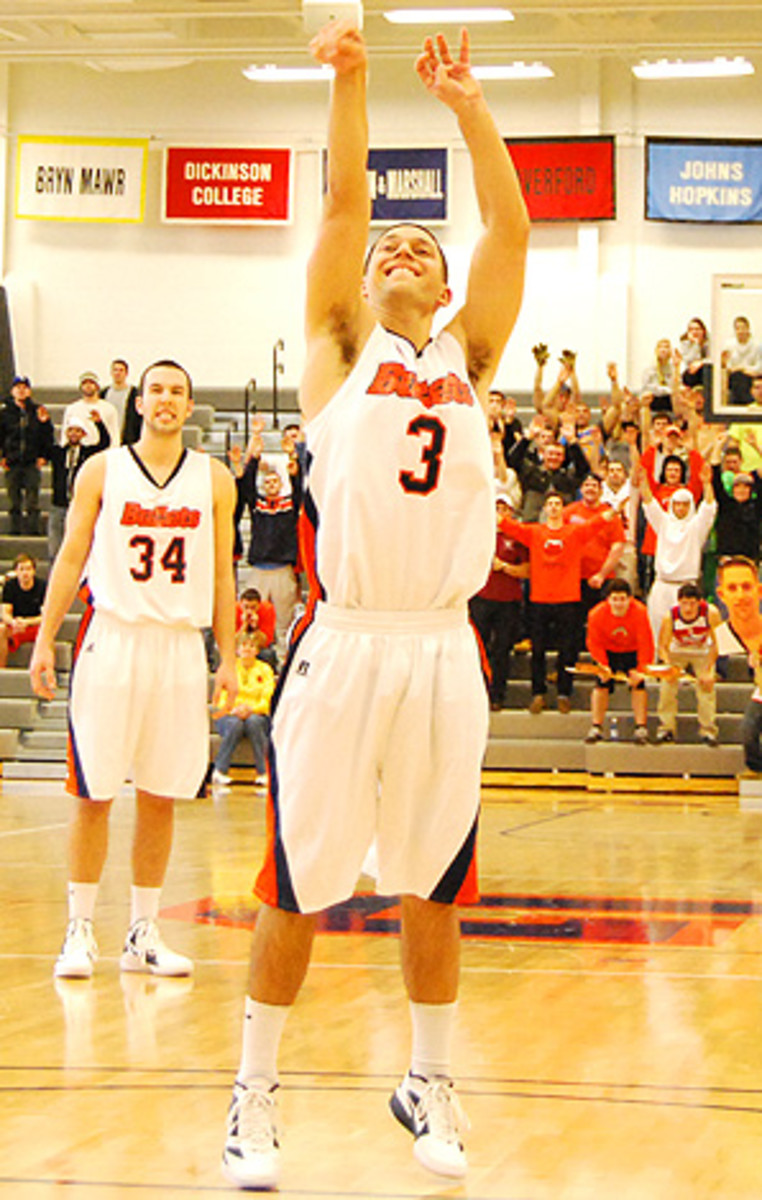Washington College basketball shows another way to win


When last we left the NCAA, it was February madness -- colleges were jumping conferences, suing each other, coaches were claiming rivals had cheated in recruiting, the usual nobility of college sports But in the midst of all this, something genuine happened when the men's basketball team at Washington College of Chestertown, Maryland journeyed to Pennsylvania to play Gettysburg in a Division III Centennial Conference game.
It was senior night, and the loudest cheers went to Cory Weissman -- number three, five-foot-eleven, a team captain -- when he walked out onto the court as one of Gettysburg's starting five. Yes, he was a captain, but it was the first start of his college career.
Cory had played a few minutes on the varsity as a freshman, never scoring; but a few weeks after that season, he suffered a major stroke at only 18 years old. He was unable to walk for two weeks. His whole left side was paralyzed. He lost his memory, had seizures.
By strenuously devoting himself to his rehabilitation, Cory slowly began to improve. He was able to return to college, and by this year, he could walk without a limp and even participated in the pregame layup drills. For senior night against Washington, his coach, George Petrie, made the decision to start Cory. Yes, he would only play a token few seconds, but it meant a great deal to Cory and to Gettysburg.
All the more touching, the Washington players stood and cheered him.
That was supposed to be the end of it, but with Gettysburg ahead by a large margin and less than a minute left in the game, Coach Petrie sent Cory back in. Nobody could understand, though, what happened next -- why the Washington coach, Rob Nugent, bothered to call time out with his team completely out of the game. The fans didn't know that he told his players in the huddle to foul number three as quickly as they could. And one of them did. With seventeen seconds left, Cory Weissman strode to the free throw line. He had two shots.
Suddenly, the crowd understood what Coach Nugent had sought to do. There was not a sound in the gym. Cory took the ball and shot. It drifted to the left, missing disastrously. The crowd stirred. The referee gave Cory the ball back. He eyed the rim. He dipped and shot. The ball left his hand and flew true. Swish. All net.
The crowd cried as much as it cheered.
The assistant vice president for athletics at Gettysburg, David Wright, wrote to Washington College: "Your coach, Rob Nugent, along with his ... staff and student-athletes, displayed a measure of compassion that I have never witnessed in over thirty years of involvement in intercollegiate athletics."
Cory Weissman had made a point.
Washington College had made an even larger one.
